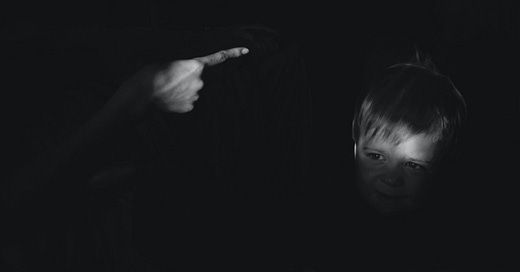Like any little kid, our five-year-old often struggles with transitions.
And being that Emily and I spent all of last week dragging him and his sister all over New York City, his life felt like, for about seven days, one ceaseless transition.
That we planned almost everything we did around him in order for him to have fun notwithstanding (remember: when you have kids, you can still travel. But it’s a whole lot more fun for everyone when you center their experience), our son was, for at least the first few days of our trip, more poorly behaved than he has been in perhaps his entire life.
The first half of our week was brutal. He wasn’t listening. He was being violent toward his sister. He was uncharacteristically selfish. He was whiny. He was petulant. He was, in short, a disaster.
And so, in response, much of the first half of our trip was spent disciplining our son, culminating in his first-ever timeout.
(Emily and I don’t believe in timeouts but we were absolutely at the ends of our ropes and wholly at a loss for what to do, as nothing else, no other consequences seemed to be working. What we do do are “time ins,” which basically means we remove of son out of whatever situation he’s in, focus on him, and try to sort out what the given problem is and how we might find a solution together. Given that we were staying in a 500-square-foot apartment in Brooklyn, it wasn’t as if we could send him anywhere for his first time out. So it just kind of became a time in anyway.)
After those first few days, however, he settled in and resumed being the sweet, kind, energetic little boy he normally is. That’s not to say our son’s normal behavior is the stuff of child-rearing legend. Hardly. He is, to quote Charlie Murphy, a habitual line stepper.
And being a habitual line stepper, our son is used to a bit of discipline. And he always knows why. The agreement Emily and I have with him (and will soon with our daughter, once she understands) is such that if he wants one, we are always required to give him a reason as to why he’s being disciplined or why he’s being told he can’t have or do something.
“Because I said so” doesn’t fly in our home.
Still, a major function of mine and Emily’s parenting style is showing our kids that actions have consequences, both positive and negative. And that often means playing the role of the bad guy.
I hate being the bad guy. What nonsociopathic parent doesn’t? It breaks my heart to see my son so upset when he’s facing consequences.
But I also recognize that there’s no value in always being the good guy.
In short, I do my best to be my kids’ dad. Nothing more. Nothing less. Sometimes that means being the good guy. Sometimes it means being the bad guy. But it always means being the dad.
Which reminds me of one of the great tokens of my own dad’s take on fatherhood.
Sometimes, when I was younger (a habitual line stepper myself), I would chide my old man for coming down on me, for not letting me get away with shit, and for not being as laid back as some of my other friends’ fathers.
And one occasion, I told him as much, wishing he would be cooler like so-and-so’s dad, who was more like a friend than a father.
His response, which now echoes my own style of parenting, is one we repeat with a laugh to this day:
“I’ll be your friend when you’re thirty. Until then, I’m your father.”
My dad, ever the good guy, was equally comfortable being the bad guy when the situation called for it. Because sometimes that’s exactly what the job calls for.




I totally get how you feel about being the bad guy. Whenever my kids start acting up, I ask them if they want "good dad" or "bad dad"? They usually pick the former.
Your father is awesome!! I love the I'll be your friend when you are 30, until then I'm your father! :)